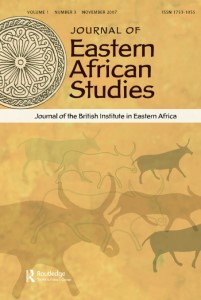Images of torture: ‘affective solidarity’ and the search for ransom in the global Somali community
 Associate Professor Anja Simonsen has co-written an article with Mohamed s. Tarabi for the Journal of Eastern African Studies on ‘affective solidarity’ and the search for ransom in the global Somali community.
Associate Professor Anja Simonsen has co-written an article with Mohamed s. Tarabi for the Journal of Eastern African Studies on ‘affective solidarity’ and the search for ransom in the global Somali community.
Recent migration trends among the Somali youth and the rise of the migrant smuggling network, in Somali known as Magafe, have rendered traditional practices of solidarity ambiguous. Somali notions of solidarity have historically been a mechanism of care within the clan system. Simonsen and Tarabi argue that traditional practices of solidarity are challenged through the intensification of ransom collection in the Somali community. In recent years, increasing numbers of young Somali migrants have been taken captive in the deserts of Sudan and Libya. Appealing to affective responses, the Magafe network use images and sound recordings of beatings and torture to convince family members, and the wider Somali community, to pay extortionate ransoms.
Based on fieldwork conducted in Somaliland in 2013, 2015 and 2021 among Somali families affected by irregular youth migration, the article finds that the willingness and ability of clan members to pay the ever-increasing sums are dwindling. Consequently, mass and social media are widely used by family members and the Magafe network alike to spread the images, sound bites and the phone numbers for money transfer. They thereby appeal to what the article conceptualizes as the ‘affective solidarity’ of the global Somali community.
Article keywords: Migration, ransom, affective solidarity, smuggling, Somaliland
Read the article in Journal of Eastern African Studies: https://doi.org/10.1080/17531055.2024.2332041
